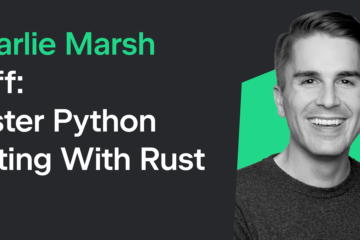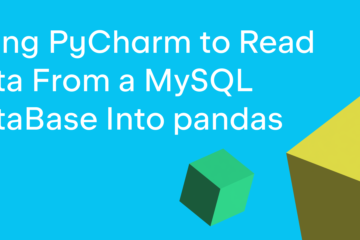This year saw the premier of the first ever PyCon Portugal! With DjangoCon Europe being hosted in Porto this year, the organizers took the opportunity to piggyback off of this conference and set up a PyCon in this beautiful country. I was lucky enough to be selected as one of the speakers, and it was great to be able to contribute to the success of the day in my own small way.
Arrival
I flew into Porto following Big Data LDN with an easy, direct flight from London. Facing equally long lines to grab a taxi or buy a tram ticket, I opted for the tram, which dropped me off just 15 minutes’ walk from my hotel. However, what I didn’t bargain for is how hilly Porto is, meaning I ended up having quite an adventure dragging my 20 kg suitcase up and down steep, narrow footpaths. I learned my lesson and took a taxi on the way back to the airport!
My hotel was definitely worth the walk, though. The staff were incredibly kind – they even served me a glass of port while I was waiting in reception! With the afternoon free, I headed out to explore Porto’s spectacular old town, Ribeira. I capped off the day with a stop at a bar for some wine and petiscos, Portugal’s version of tapas.
Conference day
As this was their first time running this conference, the organizers sensibly decided to keep it small, running it for one day with two tracks (one for talks and the other for workshops). Despite the size of the event, the attendance was impressive, with around 250 people. It was held at the Computer Sciences department at the University of Porto, which was an ideal venue with a large well-appointed lecture theater for the talks, another large room for the workshops, and plenty of space inside and outside for socializing.
We kicked off with an inspirational keynote from Daniele Procida about what it means to be a developer. This is definitely a talk that I’ll be thinking about for a long time.
Next up, speakers from Holin presented some of the ways they’re using data science to improve the sustainability of cities. I especially loved their research on how to optimize dark corridors for bats to fly around Bristol! One of the things I studied in my undergraduate days was ecology, so this really took me back.
Marcelo Trylesinski, one of the core maintainers of Uvicorn and Starlette, told us the story of how he got involved in both projects. Ashmi Banerjee then showed us some cool tricks for automating things using Python, including a very brave live demo!
In the final part of the afternoon, we got a deep dive into how Python works under the hood from Richard Rowland, and a very funny and insightful talk from Max Kahan about how to rescue a legacy project.
I also gave my talk on how machine learning models understand text by demonstrating a couple of ways you can build a clickbait classifier (using PyCharm, of course!). The audience was great, and I got a bunch of very interesting questions afterwards. I also received a lovely gift consisting of a sampler pack of choice ports, which was very thoughtful and well-suited to the host city!
Following the talks, we had a pizza party at the conference venue, which was a nice chance to catch up with people I hadn’t had a chance to meet yet.
I stayed for a few hours, enjoying the lovely weather and company, before heading off for a nightcap and calling it an evening.
The first PyCon in Portugal was definitely a success. For the size of the conference there were a lot of attendees, and the talks were interesting and high quality. The group was very relaxed and friendly, and was a good mix of developers and data scientists. Next year, the organizers are planning to make it a larger conference in another Portuguese city. Having gotten a taste of how amazing Porto is, I’m looking forward to seeing what else Portugal has to offer in future PyCon Portugals!


